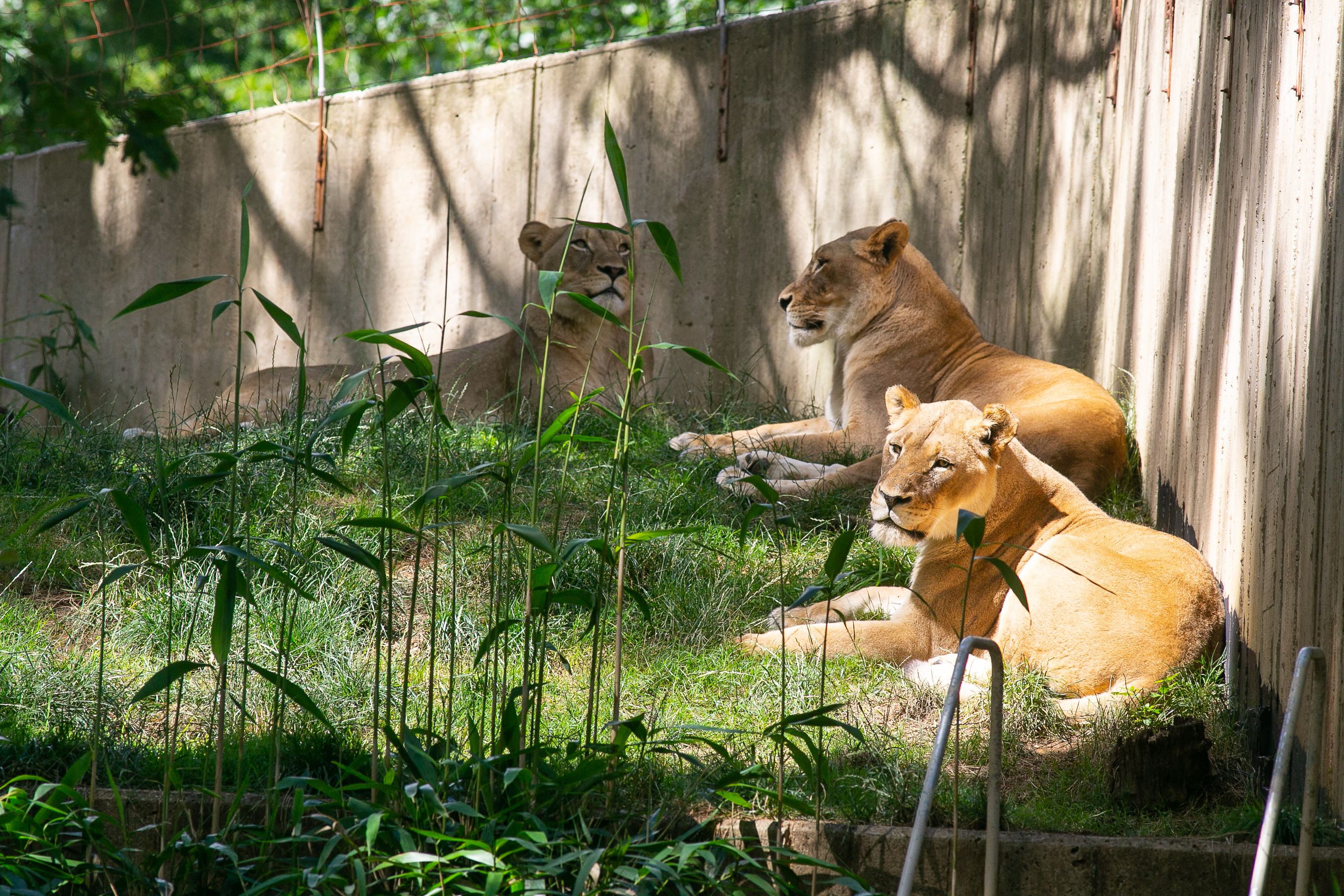Smithsonian’s National Zoo lions and tigers recover after testing presumptive positive for COVID-19
The zoo animals originally experienced decreased appetites, coughing, sneezing and lethargy.
The zoo's lions and tigers appear to be recovering several weeks after testing presumptive positive for COVID-19 (Photo courtesy of Smithsonian's National Zoo & Conservation Biology Institute).

Six African lions, 1 Sumatran tiger, and 2 Amur tigers at the Smithsonian’s National Zoo are reported to be recovering well several weeks after being diagnosed with a “presumptive positive” for COVID-19. Each of the big cats has appeared to resume their normal eating and behavior patterns.
According to a news release,1 when the diagnosis was first announced, animal keepers had noted decreased appetites, coughing, sneezing, and lethargy in the lions and tigers. The observed animals were then treated with anti-inflammatories and anti-nausea medication to address discomfort and decreased appetite. Additionally, the big cats were treated with antibiotics for presumptive secondary bacterial pneumonia. Lions are among the most susceptible to the virus that causes COVID-19.1
The zoo disclosed that the public was never at risk because of the significant distance between animals and visitors and even conducted an investigation to pinpoint the infection's source, but has not yet determined it.
"While it is possible the infection was transmitted by an asymptomatic carrier, it has been standard practice for all animal care staff and essential staff to mask indoors in all public and non-public areas," the zoo said in a release.2
What's more, Zoo workers in Washington, D.C. and Maryland are now using a COVID-19 vaccine designed specifically for zoo animals. The vaccine, developed by Zoetis, is composed in a similar way to the Johnson & Johnson vaccine, using disabled adenovirus that delivers instructions to the body on fighting the coronavirus.
Reference
- Ashford B. Smithsonian lions, tigers ‘recovering well’ after testing presumptive positive for COVID-19. News release. WUSA9. October 8, 2021. Accessed October 21, 2021. https://www.wusa9.com/article/life/animals/coronavirus-animals-lions-tigers-smithsonian-recovering-positive-for-covid-19-washington-dc/65-0a07aae3-d388-4815-b5f6-4c445f6b4ab4
- Great cats tested presumptive positive for COVID-19 at the Smithsonian’s National Zoo. News release. Smithsonian’s National Zoo & Conservation Biology Institute. September 17, 2021. Accessed October 21, 2021. https://nationalzoo.si.edu/news/great-cats-tested-presumptive-positive-for-covid-19-smithsonians-national-zoo
